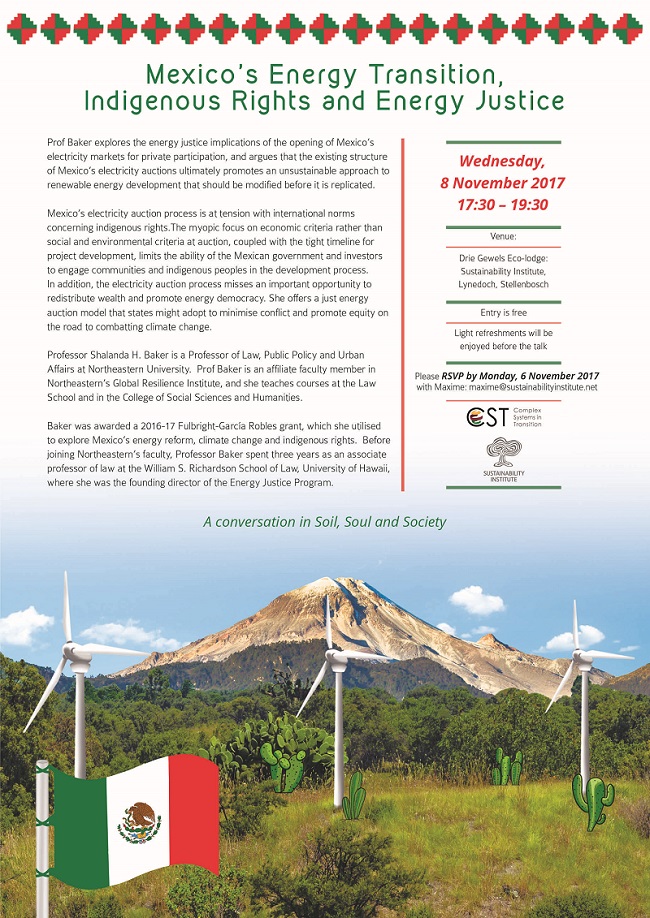In conversation with Prof Shalanda Baker
Prof Baker explores the energy justice implications of the opening of Mexico’s electricity markets for private participation, and argues that the existing structure of Mexico’s electricity auctions ultimately promotes an unsustainable approach to renewable energy development that should be modified before it is replicated.
Mexico’s electricity auction process is at tension with international norms concerning indigenous rights. The myopic focus on economic criteria rather than social and environmental criteria at auction, coupled with the tight timeline for project development, limits the ability of the Mexican government and investors to engage communities and indigenous peoples in the development process. In addition, the electricity auction process misses an important opportunity to redistribute wealth and promote energy democracy. She offers a just energy auction model that states might adopt to minimise conflict and promote equity on the road to combatting climate change.
Professor Shalanda H. Baker is a Professor of Law, Public Policy and Urban Affairs at Northeastern University. Prof Baker is an affiliate faculty member in Northeastern’s Global Resilience Institute, and she teaches courses at the Law School and in the College of Social Sciences and Humanities. Baker was awarded a 2016-17 Fulbright-García Robles grant, which she utilised to explore Mexico’s energy reform, climate change and indigenous rights. Before joining Northeastern’s faculty, Professor Baker spent three years as an associate professor of law at the William S. Richardson School of Law, University of Hawaii, where she was the founding director of the Energy Justice Program.


